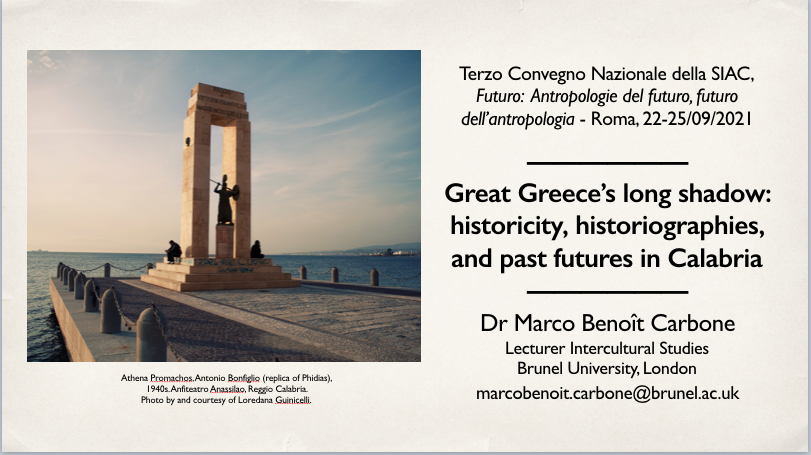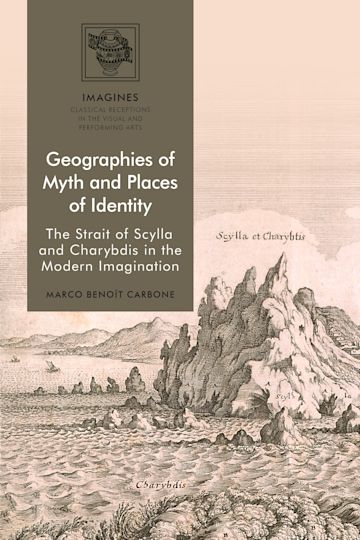
Abstract
This paper reported ethnographically on historical narratives of social identities in Scilla town and the province of Reggio Calabria, traditionally associated with ancient Great Greece. Here, Hellas is a fundamental renown of the modern region. Local cultures and historiographies have cultivated ideas of ‘roots’ via available narratives of past glory. This historical mystique works as ‘a yardstick’ reminding who people ‘should be’. Hellas also assuaged the region’s coping with a ‘crisis of presence’ at the weak end of Italy and Europe. ‘Being the Greeks’ (some of the Euro-Atlantic myth’s imagined precursor in civilisation) has reversed a regional stigma, securing a place for this marginal ‘Western’ periphery. Yet, this local historicity – a tension between a glorious past and a disappointing Southern Question – amounts to West-centric alignments with the transnational cultural capital of ‘classicism’; and of heritage and tourism as selective memorialising practices, catering to overarching hierarchies of signification. This has cast shadows on possible futures, stifling developments to map ethnically more diverse regional histories. Their nuanced reappraisal is needed as a ‘capacity to aspire’ to re-imagined pasts and futures in which mythologies of autochthony and the region’s ancillary positions within West-centred neocolonial and neoliberal histories could be questioned.
Full Reference:
Carbone, M.B. (2021), Great Greece’s long shadow. Historicity, historiographies, and past futures in Calabria. Terzo Convegno Nazionale della SIAC. Future. Anthropology of the Future, the Future of Anthropology, Rome & online. Request access
See also: Geographies of Myth and Places of Identity


Leave a Reply